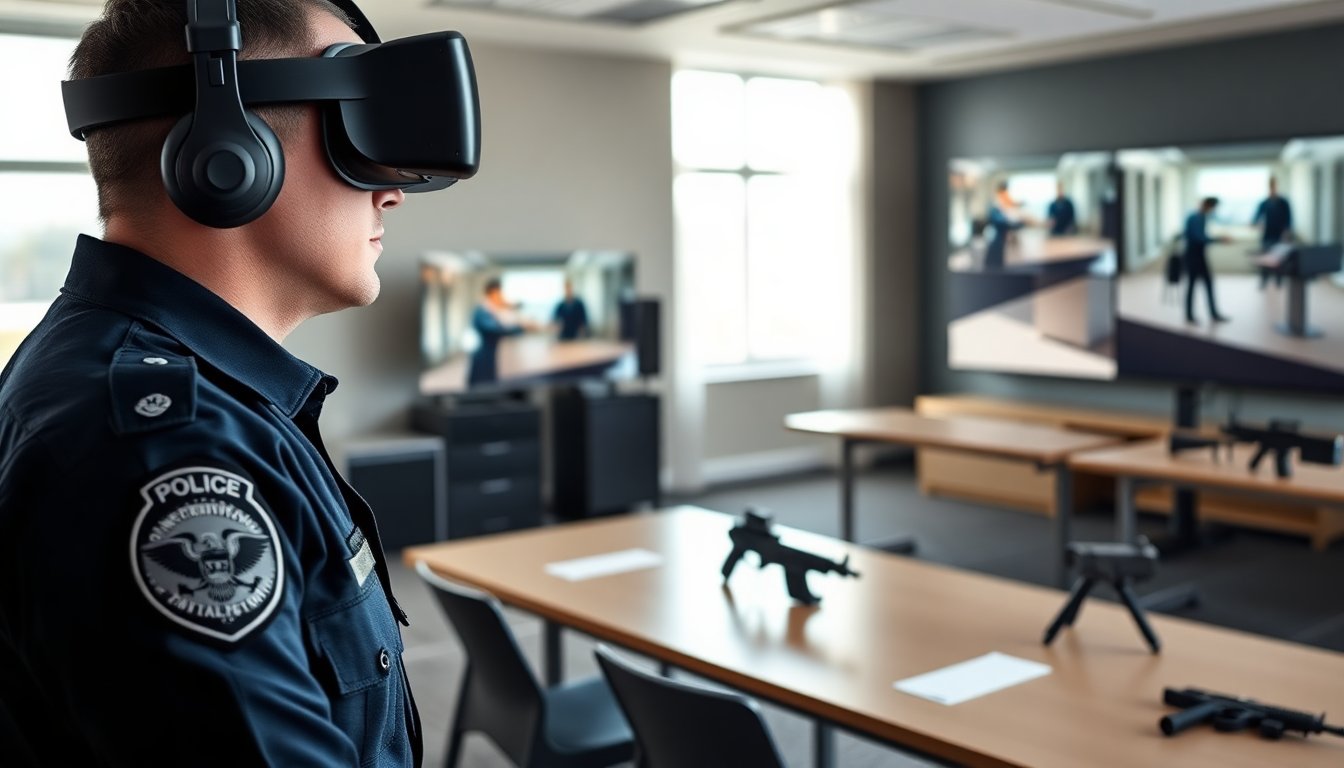Table of Contents
In a significant shift towards modernizing law enforcement training, police departments across North America are increasingly integrating virtual reality (VR) technology into their programs. This innovative method aims to equip officers with the skills necessary to make quick and effective decisions in high-stress scenarios, ensuring both their safety and that of the public.
With over 1,500 law enforcement agencies in the United States and Canada utilizing this technology, companies like Axon are at the forefront of this training evolution. Their VR platform immerses recruits in realistic scenarios, enhancing their ability to react appropriately in real-life situations.
The training landscape of the Aurora Police Department
At the Aurora Police Department in Colorado, recruits are experiencing firsthand the advantages of VR training. Jose Vazquez Duran, a recruit, describes the experience as being fully immersed in the environment: “You get to be actually in the scene, move around, just feel for everything.” This immersive experience is designed to mimic the pressures and unpredictability that officers face while on duty.
Realistic scenarios for comprehensive training
The Aurora PD leverages Axon’s virtual reality program to simulate various critical situations, including de-escalation techniques, Taser deployment, and interactions involving mental health crises. Thi Luu, vice president at Axon, explains, “It’s filmed with live actors who are re-enacting scenarios. We cover a wide range of topics, from mental health issues to encounters with individuals under the influence of drugs or involved in domestic violence.” This breadth of content allows recruits to prepare for the diverse challenges they might face on the job.
According to Sergeant Faith Goodrich of the Aurora PD, the technology streamlines training sessions: “We can have 10 or 15 recruits participating in the same scenario simultaneously, maximizing our training resources and ensuring that our officers are well-prepared.”
Adaptive learning experiences
One of the most notable features of Axon’s VR training is its incorporation of artificial intelligence. This technology allows the virtual suspects to respond dynamically based on the officers’ actions. Depending on how recruits handle each situation, virtual suspects can exhibit a range of behaviors from cooperation to aggression. This adaptability ensures that no two training sessions are alike, providing a more authentic learning experience.
Comparative advantages of virtual reality training
A recent study conducted by PwC highlights the effectiveness of VR training in law enforcement. Findings indicate that officers trained using virtual reality exhibited a training rate that was four times faster than their classroom-trained counterparts, along with a remarkable 275% increase in confidence when applying newly learned skills. This demonstrates not only the efficiency of VR training but also its potential to enhance officers’ readiness for real-world challenges.
As police departments continue to evolve, incorporating cutting-edge technology like virtual reality could play a crucial role in shaping the future of law enforcement training. By fostering a more immersive and adaptable learning environment, these programs are preparing officers to face the complexities of their duties with greater assurance and efficacy.
As departments like Aurora PD adopt these advanced training methods, the potential for improved outcomes in high-pressure situations increases. Virtual reality is not merely a trend; it represents a significant advancement in how police officers are prepared for the demands of their roles.


